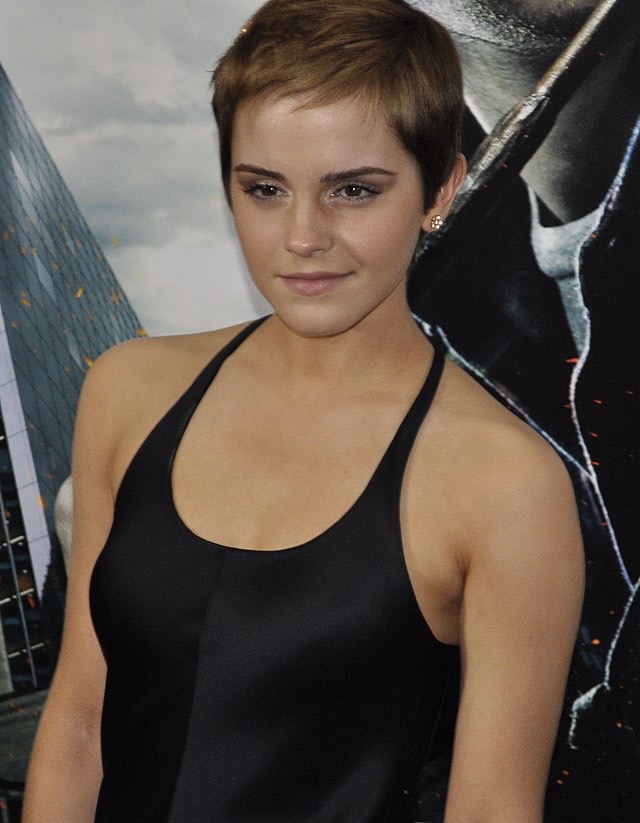British actress Emma Watson, best known for her role as Hermione Granger in the Harry Potter franchise, has re-entered the public debate surrounding transgender rights and gender identity following a recent Supreme Court ruling in the UK. Her cryptic but pointed social media post appears to challenge the celebratory reaction of J.K. Rowling, the author of the Harry Potter series, to the court’s decision—a move that further underscores the growing divide between the franchise’s cast and its creator.
The UK Supreme Court Ruling on Gender Definition
On April 30, 2025, the UK Supreme Court ruled that under the 2010 Equality Act, the word “woman” should be legally interpreted to mean biological female only, unless otherwise specified. The ruling was prompted by a high-profile legal challenge backed by gender-critical advocacy groups and has sparked fierce national and global debate about transgender rights and legal recognition.
While Justice Lord Hodge warned against seeing the ruling as a victory for any ideological side, many trans rights advocates have expressed deep concern over the implications for access to safe spaces, healthcare, and civil protections.
J.K. Rowling’s Reaction: Celebration and Backlash
Author J.K. Rowling, who reportedly helped fund the legal case that led to the ruling, responded by sharing a photo on X (formerly Twitter) of herself puffing a cigar on a yacht, captioned: “I love it when a plan comes together.”
Her post quickly went viral, with critics accusing her of gloating over a decision that could harm vulnerable people, while supporters praised her as standing up for biological women’s rights. The moment has reignited tensions within the Harry Potter fandom and broader literary and entertainment communities.
Emma Watson’s Cryptic Response
In stark contrast, Emma Watson posted a cryptic message to her 75 million Instagram followers. While she made no direct mention of Rowling or the court decision, the timing and tone of her post left little doubt about its intent.
We cannot ignore the rise of fascism by calling it debate,” she wrote. “Human rights aren’t up for negotiation. We must always stand with the marginalised.”
The quote, paired with an image of Watson walking alone through a misty forest, was widely interpreted as a veiled critique of the court ruling and Rowling’s celebration.
A History of Activism
Watson has long been an outspoken advocate for gender equality, LGBTQ+ rights, and mental health. She was a UN Women Goodwill Ambassador and spearheaded the HeForShe campaign promoting gender solidarity.
In 2020, she publicly declared, “Trans people are who they say they are,” and affirmed that “they deserve to live their lives without being constantly questioned.” Her values appear deeply at odds with the gender-critical views Rowling has continued to champion.
Harry Potter Cast Divided
Watson isn’t alone. Fellow Harry Potter alumni Daniel Radcliffe and Rupert Grint have also previously expressed support for the transgender community. Radcliffe penned an open letter in 2020 affirming that “transgender women are women,” distancing himself from Rowling’s narrative.
More recently, newly cast Harry Potter actor Paapa Essiedu, who is set to portray Severus Snape in HBO’s upcoming reboot, signed a pro-trans open letter along with more than 400 actors and media professionals.
Paapa Essiedu’s Recent Stand
Essiedu’s support of the LGBTQ+ community has drawn backlash from some trans activists who argue he should not be involved in Rowling’s franchise at all. Nevertheless, insiders claim Rowling is “unbothered” by cast members’ political stances and will not intervene in their casting, despite her prominent role in the HBO adaptation’s development.
The Broader Impact on the Franchise
The cultural and political rift between Rowling and much of her cast has created a unique tension within one of the most beloved fictional franchises in modern history. Fans are divided, with some pledging to boycott the reboot, while others call for a reclaiming of the franchise’s inclusive legacy.
Despite the controversy, production on the HBO reboot continues, and Rowling remains a key stakeholder. The show’s future success may hinge on how well it navigates the public perception of its creative leadership and casting dynamics.
Conclusion
Emma Watson’s statement, though brief and cryptic, has once again spotlighted the moral divisions surrounding transgender rights, gender identity, and celebrity responsibility. Her refusal to remain silent underscores her commitment to inclusivity and justice—values increasingly central to public discourse in entertainment and beyond.
As Harry Potter continues to evolve under HBO’s lens, the tension between its cast and its creator reminds us of the lasting power of art to reflect and challenge societal values.
FAQs
Q1: What did Emma Watson say about the Supreme Court ruling?
A: Watson posted a quote about resisting fascism and standing with marginalized people, widely interpreted as criticism of the ruling and Rowling’s reaction.
Q2: What was the UK Supreme Court’s decision?
A: The court ruled that “woman” in the Equality Act refers to biological women, a decision seen as limiting transgender legal protections.
Q3: How did J.K. Rowling respond to the ruling?
A: Rowling celebrated online, sharing a photo smoking a cigar on a yacht and writing, “I love it when a plan comes together.”
Q4: Have other Harry Potter actors spoken out?
A: Yes. Daniel Radcliffe, Rupert Grint, and new cast member Paapa Essiedu have all voiced support for trans rights.
Q5: Will Emma Watson return for the Harry Potter reboot?
A: As of now, there is no indication she will participate. The reboot features an all-new cast, with HBO focusing on a season-by-season adaptation of the books.



